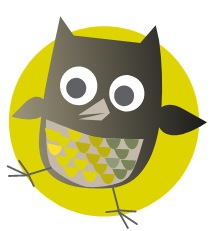Anxiety is the 2021 Oxford Children’s Word of the Year.
It’s probably not suprising there’s been a significant growth in the vocabulary of mental health and wellbeing, with teachers finding young people more able to express their feelings in the classroom in the wake of the pandemic, school closures and isolation.
“Children are familiar with a lot more vocabulary linked to health and wellbeing and are able to describe their feelings and thoughts in more detail than before lockdowns”
– Classroom Teacher.
This positive sign shows children competently finding words to confidently share and explore their feelings, with teaches supporting in this by giving students positive direction, and encouraging adaptability and resilience.
The Research
For over a decade lexicographers, publishers and editors from Oxford University Press have been tracking changes in children’s vocabulary and self-expression. This year the Children’s Language team selected wellbeing as a focus area for vocabulary and language research.
8,000 pupils from Year 3 to Year 9 discussed wellbeing with their teachers and chose the words they would be most likely to use when talking about health and wellbeing and their experiences of lockdown and the coronavirus pandemic:
-
- Anxiety was the top children’s choice with 21%
- Challenging was a close second with 19%
- Isolate was the next most popular word with 14%
85 teachers were asked for the word they would use most when talking to their pupils about health and wellbeing in the context of the last two years:
-
- Resilience was the top teachers’ choice with 31%
- Challenging was the second choice with 19%
- Wellbeing was the next most chosen word with 18%
“I think that sometimes the language we use can increase anxiety, so we have to be very clear about how we address language and difficult topics with students.” – Nicola Kind, Head of Philosophy and Ethics, Ifield Community College, West Sussex
The Highlights
- Language is key to self-expression, learning and wellbeing. It is a positive sign that children are comfortable and confident about sharing their feelings in the classroom – that they feel it is OK to express anxiety.
- Teachers feel children are better equipped with the vocabulary they need to express and explore their feelings than before lockdowns.
- The Oxford Children’s Corpus shows a threefold increase in use of the word anxiety from 2012 to 2020 with a move away from using anxiety in the context of perils in fantasy and adventure stories, to the realities of social anxiety and ‘stress about schoolwork’.
- Teachers have chosen resilience as the top word they use, demonstrating the crucial role they have in providing that positive direction and language modelling for students.
- The findings demonstrate the role we all play in making sure children have the words they need, and the importance of being aware of the language adults use around young people and how that can influence their learning and wellbeing. – This latest research supports findings from Oxford’s ongoing research into the “word gap” (when vocabulary falls below age related expectations) which highlights the huge role teachers and parents play in modelling language, and giving young people all the words they need in life, not just in school.
Oxford Children’s Word of the Year Report 2021
To find out more, and read the full Oxford Children’s Word of the Year & Oxford Children’s Language Report 2021, you can download the report from the Oxford University Press website.
Anxiety and Wellbeing
If your child is feeling anxious, or you are looking at ways to talk about mental health and wellbeing with you child at home, the following links may help:
Books to build Vocabulary
Oxford Roald Dahl Thesaurus
Susan Rennie, Quentin Blake, Roald Dahl | Age 8+
This is a real thesaurus for all chiddlers and even some adult human beans. It features hundreds of spliffling words used and created by the world’s best storyteller, Roald Dahl, together with useful synonyms, related words and phrases, idioms and word origins.
Big Words for Little People
Helen Mortimer, Cristina Trapanese | Age 3+
A series of picture books designed to help you talk about the ups and downs of first experiences and new emotions with your child. Created by language experts at Oxford University Press, each book contains carefully-chosen feature words to support early years learning and equip children with the language skills to develop and grow, including Happiness, Calmness and Doing your Best.




